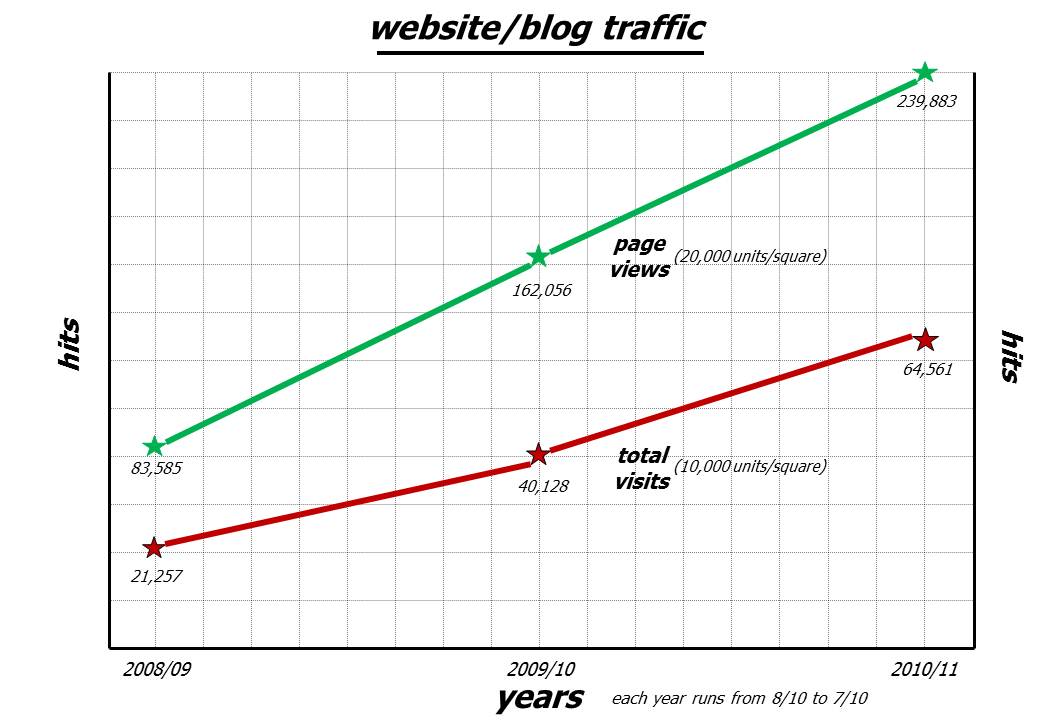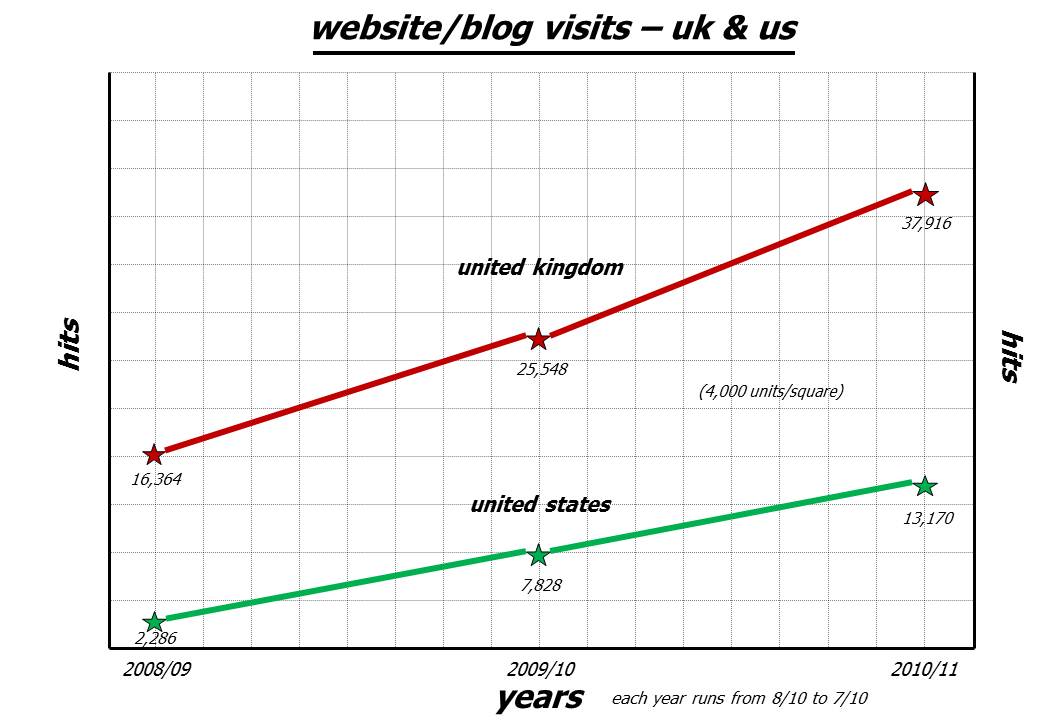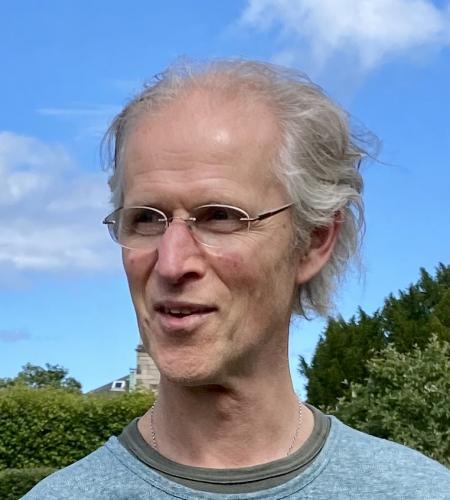Update on website traffic: nearly a quarter of a million page views last year
Last updated on 3rd April 2012
This blog went live on 8th October 2008. In the nearly three & a half years from then up until today, the blog & website (particularly the Good Knowledge section) have had 155,178 hits and 579,356 page views from 171 countries. The average visitor views about 4 pages on the site. The chart below illustrates the growth in traffic over the first three years (to 7th October 2011):

As I'd expect, most visitors come from the UK and, to some extent from the US:


